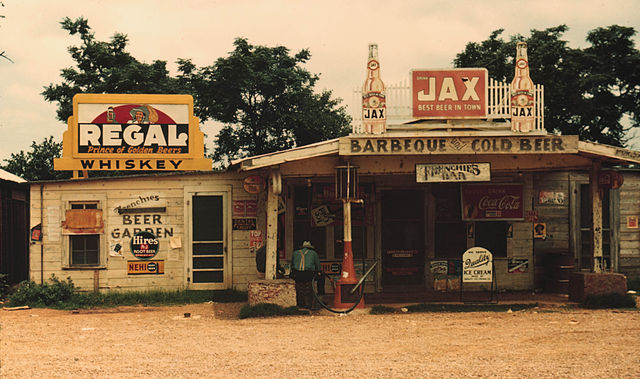A cover charge is an entrance fee sometimes charged at bars, nightclubs, or restaurants. The American Heritage Dictionary defines it as a "fixed amount added to the bill at a nightclub or restaurant for entertainment or service." In restaurants, cover charges generally do not include the cost of food that is specifically ordered, but in some establishments, they do include the cost of bread, butter, olives and other accompaniments which are provided as a matter of course.
Club bouncers are sometimes responsible for collecting a cover charge.
When a group of people sit at a table in for a dinner, several type of restaurants will charge an additional fee even for a guest who does not order any food; this charge is for the service of setting out the tablecloth, napkin, and cutlery.
Bars often impose a cover charge for the expense of paying entertainers, such as DJs.
A bar, also known as a saloon, a tavern or tippling house, or sometimes as a pub or club, is an establishment retail business that serves alcoholic beverages, such as beer, wine, liquor, cocktails, and other beverages such as mineral water and soft drinks. Bars often also sell snack foods, such as crisps or peanuts, for consumption on their premises. Some types of bars, such as pubs, may also serve food from a restaurant menu. The term "bar" refers to the countertop where drinks are prepared and served, and by extension to the overall premises.
A hotel bar in Switzerland
A Depression-era bar in Melrose, Louisiana
Gunpowder Cellar of Tartu, a former 18th-century gunpowder cellar and current beer restaurant in Tartu, Estonia
SpåraKoff, the so-called "pub tram", departing from Railway Square in Helsinki, Finland







